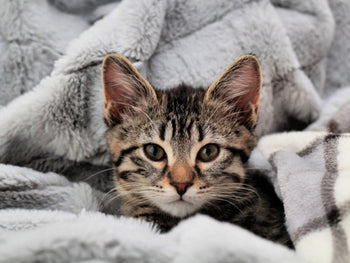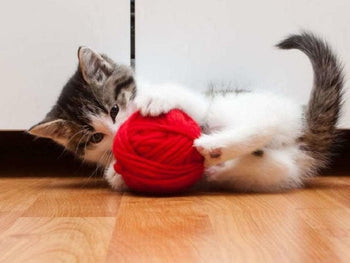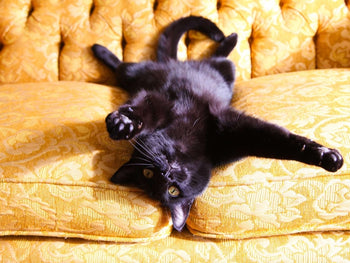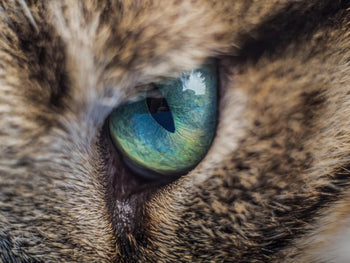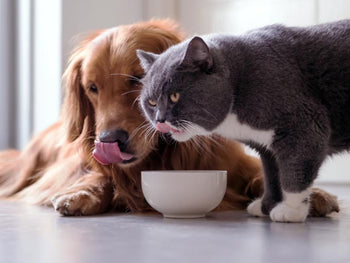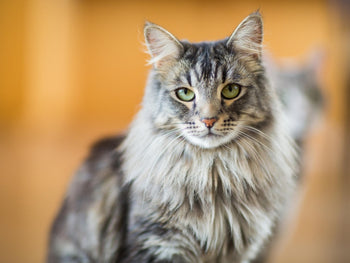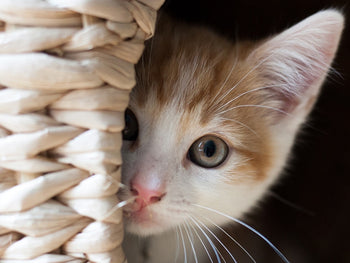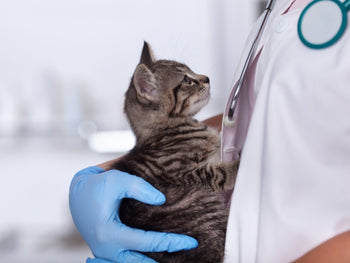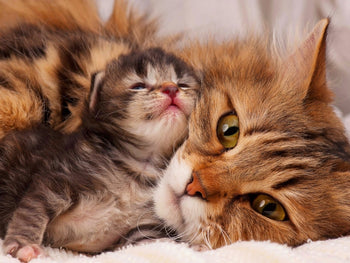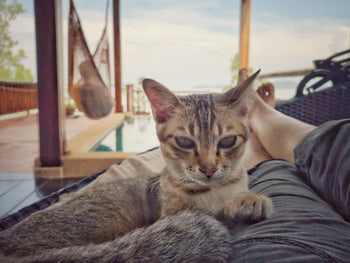
For a few weeks after birth, kittens have to be stimulated around the rear in order to defecate and urinate. In most of the cases, the felines would learn how to eliminate by themselves once they reach 3 weeks of age. That means if your furball is just about a month old, you should consider getting a litter box for it. As kittens must eat a lot every day to support their rapid growth, it's quite natural for them to use the litter box regularly. But if your 3-week-old kitten won't poop then something may be wrong here.
So you want to know why your fluffy friend stops popping all of a sudden? Then you come to the right place as this article contains everything that cat parents need to keep in mind about difficult defecation in kittens.
The Root Of The Problem

Generally speaking, different cats have different issues but if your 3-week-old kitten won't poop, think about the following suspects while analyzing the situation
-
Significant Infestations Of Intestinal Parasites
Cats, especially ones that live in the great outdoors, run into parasites such as hookworms, roundworms,... every now and then. The nutrition leeches pass from host to through many ways including milk of mother cat. That means if the queen is afflicted with worms, her newborn kittens shall likely have the intestinal parasites as well. Considering the fragile constitution of kittens, parasitic worms could multiply without difficulty to the point that they block the colon. Needless to say, it's practically impossible for kittens to poop with a blocked colon.
-
Certain Types Of Administering Drugs
While a couple of health issues in kittens indeed resolve themselves over time, others require the use of specialized medications. The medications help sick felines but they also carry their own set of side effects. So in case your 3-week-old kitten won't poop right after taking certain medicines, such as dewormers, you really have nothing to worry about. Usually, everything would come back to normal the following day. Obviously, to be on the safe side, it's wise for pet owners to report to veterinarians about odd developments.
-
Less Than Ideal Daily Diets
Between Week 3 and Week 4, most kittens shall enter the weaning phase in which they move from milk to solid food. Assuming that you give your furball nutritious meals during that phase, it's going to carry on just like usual. On the other hand, if your kitten receives an unbalanced diet, issues such as diarrhea, constipation and so on could show up in the pet. Fortunately, in that situation, all you need to do is to make a couple of minor adjustments to the meals. Most of the time, an increase in fiber content should do the job nicely.
-
Unsuitable Litter Type/Litter Box
Being finicky creatures, kittens may refuse to poop because they find their litter box unappealing. That is why it's strongly recommended that you experiment with various litter types to see which one matches the taste of your fluffy friend. In addition to that, it's essential to use a kitten-friendly litter box: The felines might neglect the box if the edges prove too high for them to cross. The location of the litter box plays a critical role as well because your furball often prefers to take care of its business in peace.
-
Accidental Ingestions Of Inedible Stuff
Every cat parent knows that kittens put all sorts of things into their mouth without a care in the world. Despite the fact that felines would lose interested if they detect unpleasant tastes, they sometimes swallow small items by mistake. At best, the items eventually come through the anal without causing troubles to the pets. At worst, the items lodge themselves in the intestines of kittens which result in blockages. If your 3-week-old kitten won't poop due to intestinal blockages then you have to act at once to save it from fatal consequences.
Check us out for various astonishing cat tips & facts!
A Trip To The Vets Is Always A Safe Bet

Compared to ordinary pet owners, trained veterinarians have superiors knowledge as well as a means to detect health issues in cats. As a result, it's widely advised that you schedule a vet checkup at once in case you notice something odd in your kitten.
At veterinary clinics, people would run a couple of tests in order to see what is going with your kitten. Medications in addition to diet changes should be enough to handle defecation difficulty in kittens. Nonetheless, in severe cases, the vets might have to perform surgery to resolve the problem. Regardless of what happens, it's essential that you follow the instructions of your veterinarian so as to get your furball back to good health. Whatever you do, don't give your kitten random drugs without obtaining clearance in advance.
Taking Care Of Tender Kittens: Suggestions For Novice Cat Parents

- Make The Interior Kitten-Friendly: Overall, not only kittens need to be protected from outside threats but they also need to be protected from themselves. The curious nature of the felines motivates them to take a bite of virtually everything. Hence, it's of utmost importance that you keep your fluffy friend from away from strings, ribbons, yarns, rubber bands,... If you think a particular item is small enough for your furball to swallow, proceed to move it out of the reach of the pet. Invest in some healthy scratchers or toys instead.
- Be Careful While Introducing Changes: At 3 weeks, kittens remain quite young but they could remember the habit of people as well as arrangements of furniture. If your furball comes to realize rapid disruptions to their environment, they may behave erratically. That is why it's strongly recommended that you take your kitten into account before making changes to the house.
- Keep Watch Over The Pet: newborn kittens have a weak constitution so minor health issues could give them great troubles. So it's necessary that you look after your fluffy friend in order to quickly detect signs of potential problems.
Read more Cat's Health Guides and find fun stuff on Cattybox!
